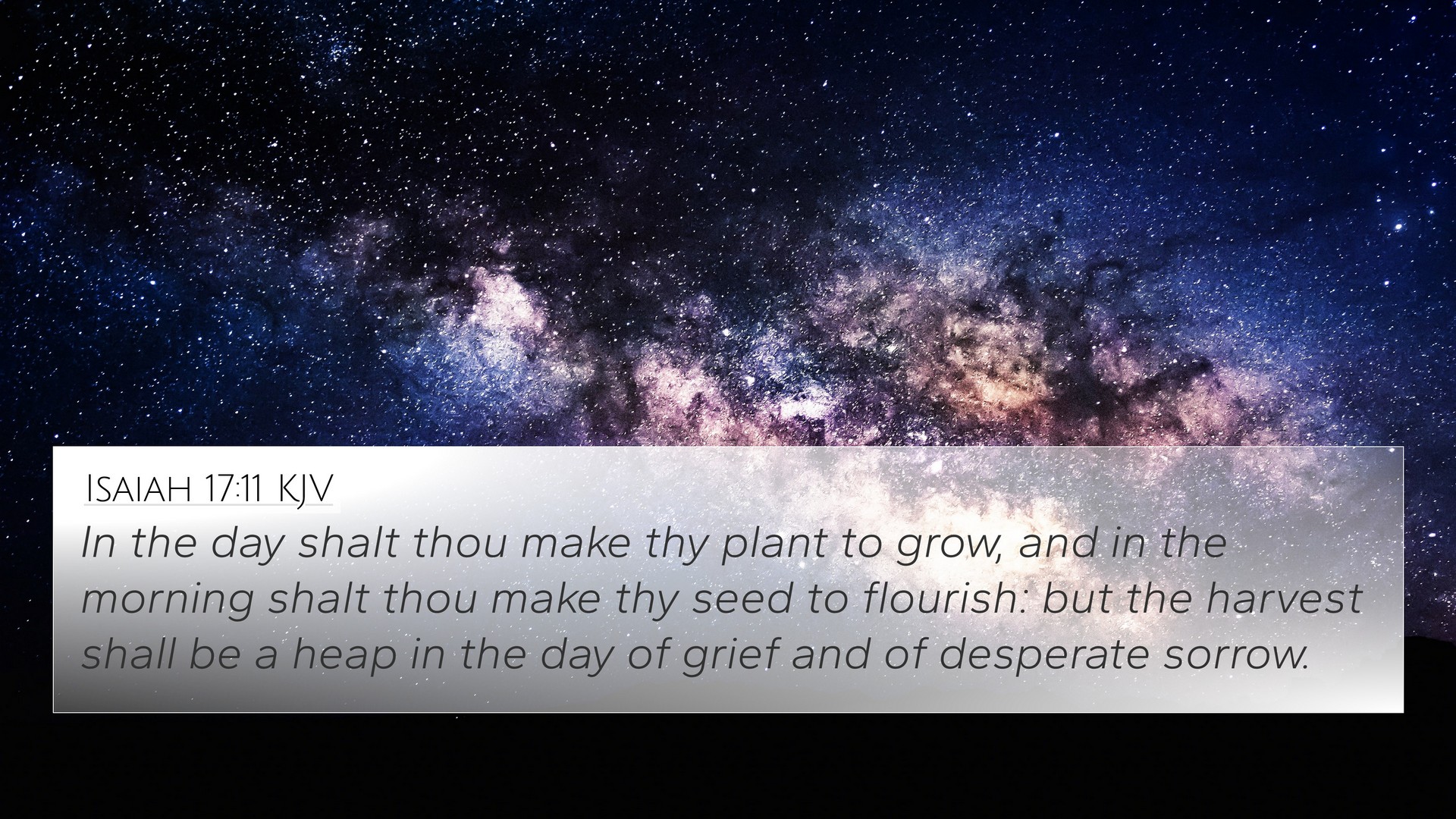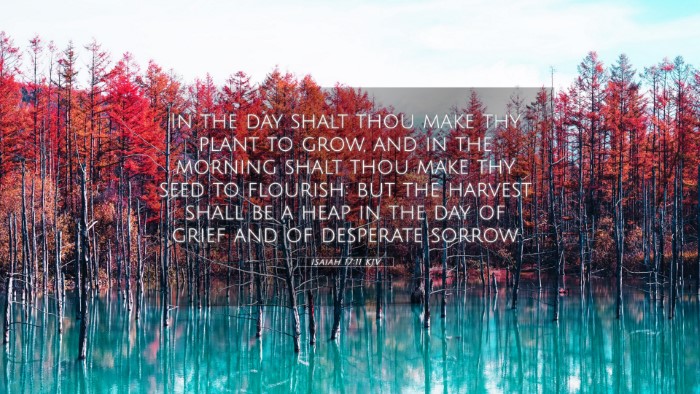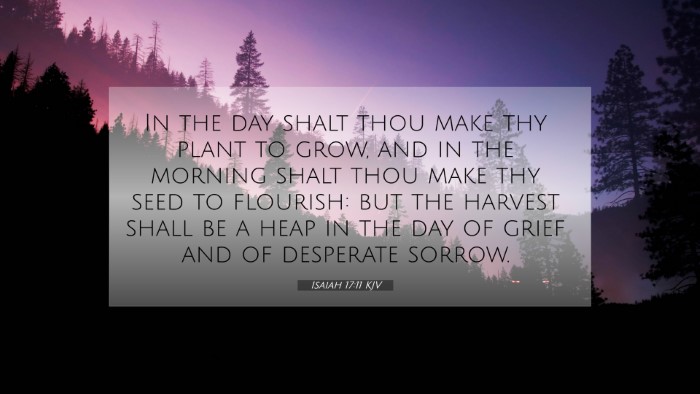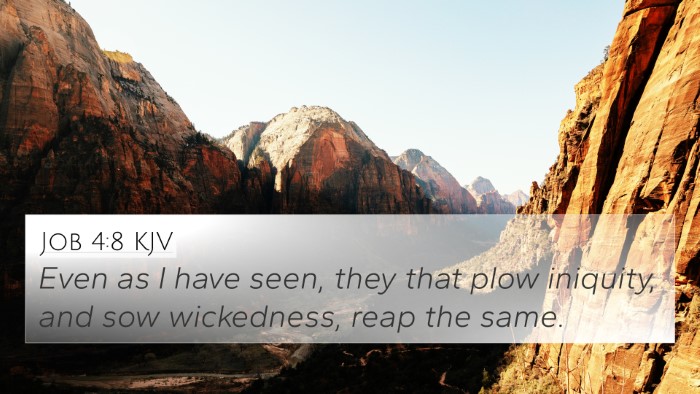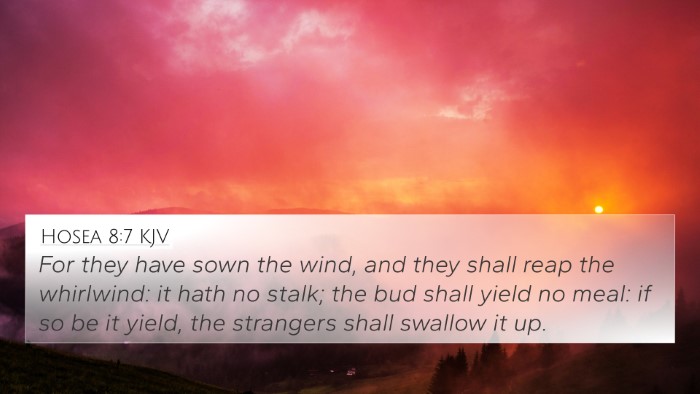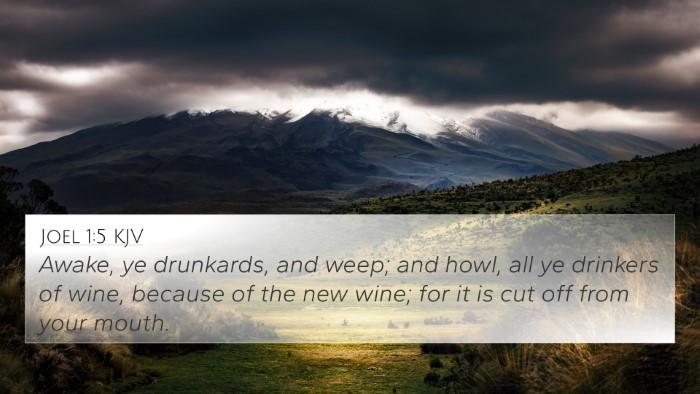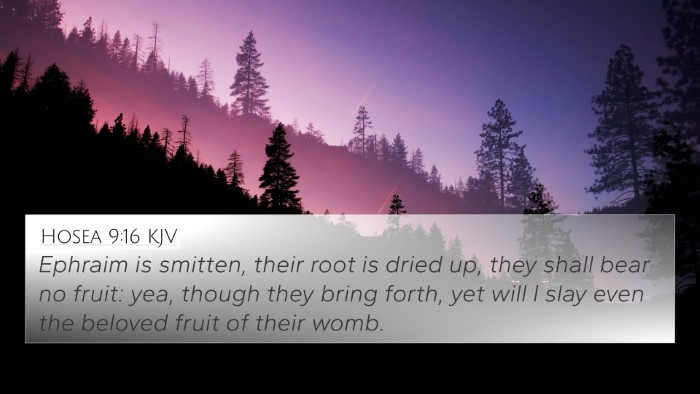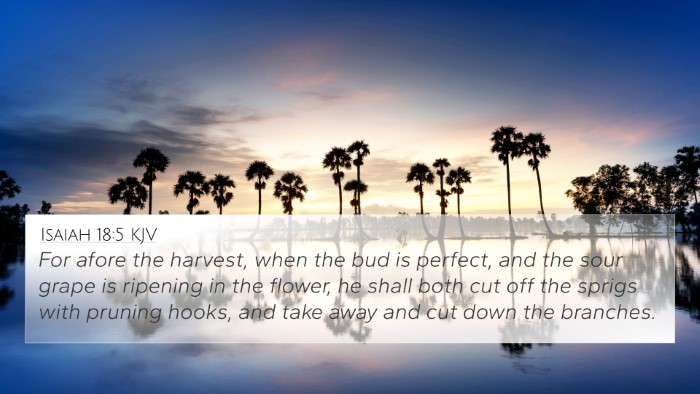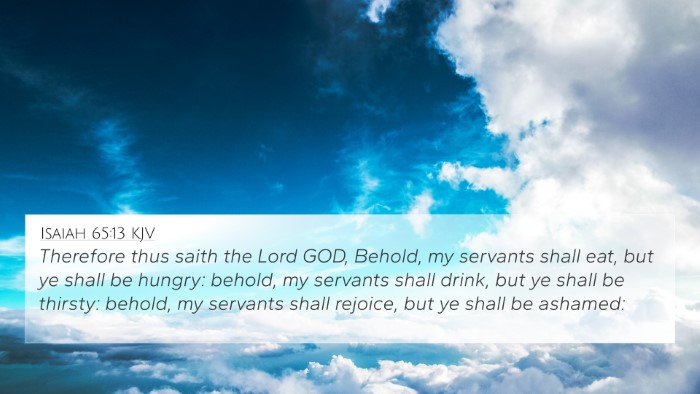Understanding Isaiah 17:11
Isaiah 17:11 states: "In the day shalt thou make thy plant to grow, and in the morning shalt thou make thy seed to flourish: but the harvest shall be a heap in the day of grief and of desperate sorrow." This verse uses agricultural imagery to convey profound spiritual truths.
Summary of the Verse
This verse highlights the contrast between initial growth and the eventual harvest, symbolizing both potential and the inevitable consequences of neglect. The first part of the verse emphasizes the stages of growth, while the latter part speaks to a time of reckoning that follows a period of fruitless labor.
Commentary Insights
- Matthew Henry sees this verse as a representation of the futility of relying on earthly endeavors without divine support. He emphasizes the transition from hope to disappointment, depicting how seeds may flourish momentarily yet lead to an unsatisfactory outcome when the right conditions are not met.
- Albert Barnes draws attention to the symbolism of the harvest, suggesting that it reflects spiritual outcomes rather than merely agricultural results. He notes that while growth may appear promising, the ultimate harvest can reveal whether those endeavors were fruitful or barren.
- Adam Clarke emphasizes the emotional weight of the "day of grief and of desperate sorrow," indicating a time when what was expected to bear fruit resulted in despair. He encourages readers to consider the importance of following God's will in all pursuits to ensure a bountiful harvest.
Thematic Connections
Isaiah 17:11 speaks to broader biblical themes about growth, expectation, and divine judgment. It relates to other biblical texts that emphasize the importance of spiritual faithfulness and fruitfulness.
Related Bible Verses
- Galatians 6:7-8: “For whatever one sows, that will he also reap...” - This parallels the concept of sowing and reaping found in Isaiah 17:11.
- Matthew 13:24-30: The Parable of the Weeds - Illustrates the outcome of good and bad sowing.
- Hosea 10:12: “Sow for yourselves righteousness; reap steadfast love...” - Encouraging righteous sowing for a fruitful harvest.
- John 15:1-5: The True Vine - Emphasizes the significance of remaining in Christ to bear fruit.
- 1 Corinthians 3:6-7: “I planted, Apollos watered, but God gave the growth...” - Acknowledges God as the ultimate source of increase.
- James 3:18: “And a harvest of righteousness is sown in peace by those who make peace.” - Highlights how peace leads to a fruitful outcome.
- Revelation 14:15: “For the hour to reap has come, for the harvest of the earth is fully ripe.” - Reflects the ultimate culmination of sowing in previous life stages.
Applying the Verse
This verse serves as a prompt for self-examination. It urges believers to cultivate their spiritual lives with intention, ensuring that their actions align with godly principles. The rich imagery reinforces the importance of yielding to divine guidance, implying that while personal endeavors may yield temporary growth, true fruitfulness comes only through obedience to God's word and to His timing.
Conclusion
In Isaiah 17:11, we find a vivid reminder of the dual nature of spiritual success: the promise of initial growth juxtaposed against the sobering reality of ultimate accountability. By cross-referencing this verse with others, such as those noted above, readers can gain a fuller understanding of God's expectations and the importance of faithful commitment in cultivating a life that honors Him.
Further Study Tools
For those interested in deepening their understanding of scriptural connections, consider utilizing:
- Bible Concordance: To find where similar themes or words appear throughout scripture.
- Bible Cross-Reference Guide: This tool aids in linking related verses for a comprehensive study.
- Cross-Referencing Bible Study Approaches: Methods for exploring connections between Bible verses systematically.
- Bible Reference Resources: Materials that assist in navigating scripture efficiently during study sessions.
Final Reflection
As we reflect on Isaiah 17:11, we are reminded of the importance of seeking God's will in both our agricultural endeavors (literal or metaphorical) and spiritual pursuits. May the lessons derived from this verse propel us towards deeper explorations and a more profound understanding of our faith.
